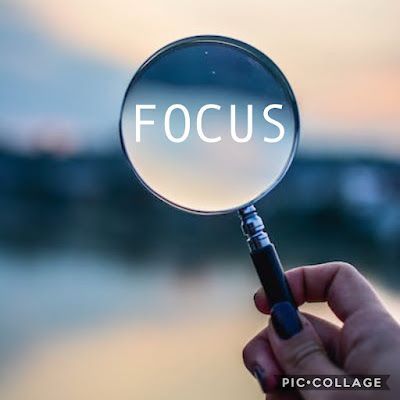You’ve heard it since you were little: Follow your dreams.
Your teacher said it. Motivational posters echoed it. Even movies and music project it. The message is everywhere. It sounds like a secret formula that, if followed correctly, will unlock a life full of meaning, freedom, and success. And if you’re someone who has big ideas, restless ambition, or just a deep desire for more, this advice feels like permission.
Permission to leave the ordinary behind and do something truly extraordinary.
But if you’ve ever actually tried to follow your dreams, you may have discovered something we don’t talk about enough: it’s not that simple.
And the nagging question that quietly creeps in when things get tough is one many of us wrestle with:
What happens when following your dreams doesn’t work out the way you expected?
What happens when your passion doesn’t pay the bills? Or when the “dream” turns into a stressful, confusing mess that makes you wonder if you were naïve to even try? What happens when you don’t have a clear dream to follow in the first place?
When we tell people to “follow their dreams” without any context or structure, we’re kind of setting them up. We’re implying that success is just about belief. But the real world doesn’t run on dreams alone. It runs on timing, strategy, skills, relationships, emotional stamina, and sometimes, just plain luck.
Chasing something without a plan can leave you broke, frustrated, and questioning your worth. Not because your dream was invalid, but because no one gave you the rest of the story.
Let’s get one thing clear: the problem isn’t the dream. Having a dream — that longing to live fully, do meaningful work, and leave some kind of mark — is powerful. It’s human. It’s often the thing that gets us through the hard days.
But dreams are not careers. They are not strategies. And they definitely aren’t guaranteed.
What no one explains when they hand you the “follow your dreams” slogan is how much building, failing, recalibrating, and repeating is involved. They don’t tell you that the path to any dream worth having is often long and painfully unglamorous.
Most of the time, the early stages look more like confusion than clarity. You’re learning on the go. Trying to make something out of an idea that feels exciting but still slippery in your hands. You might doubt yourself more than once. You might pivot. You might even grieve the loss of the original dream before discovering a newer, better one that fits who you’ve become.
But that’s not failure. That’s growth.
A Dream With No Framework Is Just a Fantasy
It’s easy to romanticise the dream, to see the highlight reel of someone else’s success and believe that all it took was courage. But courage is only part of it.
The reality is, many people are trying to turn their passion into a career while carrying the weight of real life: bills, family responsibilities, emotional pressure, even societal expectations. Telling someone to quit their job and chase their dreams without a game plan isn’t inspiring. It’s reckless.
If your dream is going to thrive, it needs structure. It needs a scaffold, not just a spark. A way to support it through the slow seasons. A way to test it in small ways before betting everything on it. A way to protect your mental health while you pursue something uncertain.
That’s where many people lose hope — not because they weren’t passionate, but because they were passionate without a path.
We often associate dream-chasing with big, bold moves. The quit-your-job, sell-your-stuff, start-a-new-life kind of moves. That works for some, but for many others, it doesn’t. Not because they’re lazy or scared, but because life is more layered than that.
There’s nothing wrong with building your dream quietly.
You can build after work. You can build during your commute. You can build in the 45-minute pocket between putting your kids to sleep and going to bed yourself. You can build without announcing it to anyone.
There’s strength in the slow build — in letting your dream evolve naturally instead of forcing it to happen all at once. You’ll make fewer desperate decisions. You’ll have space to think. And most importantly, you’ll know if the dream actually fits you, or if it was just something you liked the sound of.

Sometimes, It’s Not the Dream That’s the Problem; It’s the Timeline
One of the most dangerous assumptions we make is thinking that if something doesn’t happen fast, it’s probably not meant to be. We want the story to unfold quickly: discovery, decision, and breakthrough all within the same year.
But real dreams have their own pace. And it’s rarely the one we imagined.
Truth is, your dream might take five years to build. Maybe ten. Maybe it won’t arrive in the form you expected at all, but through a series of surprising detours. That doesn’t mean it’s any less valid. If anything, that winding road probably taught you more than a straight line ever could.
We don’t all get overnight success. Most people don’t. And there’s nothing wrong with that. In fact, when you’re not rushing the process, you often build something more sustainable, more honest. Something that lasts.
When You Don’t Have a Dream
Here’s another piece of the conversation we rarely have: not everyone has a dream. At least, not a clear, defined, headline-worthy one.
And that’s okay.
The pressure to find a “dream” can feel suffocating. Especially when it seems like everyone around you is building businesses, launching side hustles, or chasing something they’re deeply passionate about.
But some people don’t want to be entrepreneurs. Some people don’t want to “disrupt” anything. Some just want a meaningful job, enough peace to enjoy their evenings, and the freedom to pursue hobbies without monetising them.
That’s a valid dream, too.
Your life doesn’t have to be epic to be fulfilling. You don’t have to chase fame, or six figures, or a perfectly curated Instagram lifestyle to be proud of where you are. Sometimes, quiet satisfaction is the dream. And it’s just as worthy.
Purpose Can Be Built, Not Just Found
We talk about purpose like it’s this magical moment — one flash of clarity, and suddenly, you know exactly what you’re meant to do with your life. As if it’ll just appear one day, fully formed, like a calling with your name on it.
But in real life? That’s not how it usually works.
Purpose doesn’t always arrive in a single moment. More often, it unfolds. Quietly. Gradually. Through choices you didn’t even realise were shaping something deeper.
It’s built in the trying — in saying yes to opportunities that stretch you, in fumbling through new experiences, and in discovering what energises you and what drains you. It’s built in jobs you outgrow, projects you abandon, and conversations that spark a shift. It’s built not by having it all figured out, but by staying curious enough to keep exploring.
The question isn’t always “What was I born to do?”
Sometimes it’s just, “What’s the next right thing I can do from here?”
The most fulfilling careers rarely come from a perfect five-year plan. They come from people who paid attention, stayed flexible, and let their values — not just their titles — guide the way.
So if you haven’t “found” your purpose yet, that’s not a failure. It’s just the beginning of your chance to build it.
Lead Your Dream
Maybe it’s time we retired the phrase “follow your dreams.”
Because dreams aren’t some magical force pulling you toward a perfect life. They don’t lead. They don’t give instructions. They don’t come with GPS.
Dreams need direction. They need leadership. They need you to take ownership.
To set boundaries. To build structure. To protect your mental health. To be okay with starting small. To let go of perfection. To change your mind when it no longer feels aligned. To redefine what success actually looks like — not just based on what other people say, but based on what you value.
When you’re only following, you’re assuming the dream knows the way. It doesn’t.
You’re the one charting the course.
And when you start leading your dream — actively shaping it, instead of waiting for it to magically work out — everything changes.
So in conclusion, dreams matter, but how you carry them matters more.
Stay frosty.
You might want to read this: 4 reasons why “follow your dreams” is terrible career advice – Smartbrief.com




